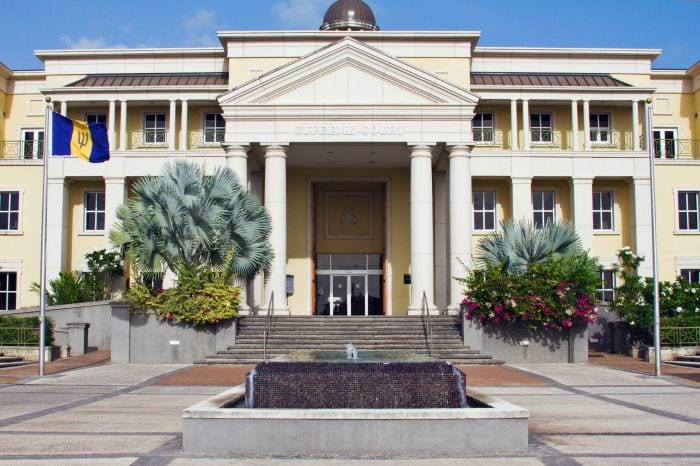The Court-Annexed Mediation Pilot Project is now in operation at the Supreme Court and Magistrates’ Courts of Barbados, after being officially implemented on September 5, to assist in reducing the backlog of cases.
This was confirmed by Mediation Coordinator, Hariette Payne, who explained that cases such as unfair dismissal, contracts, family law, personal injury and land law cases [those cases involving disputes between neighbours], were now being sent to mediation.
However, Mrs. Payne noted that there were exceptions that did not qualify for mediation. Those are urgent applications, constitutional, proceedings under the Administrative Justice Act Cap 109 of the Laws of Barbados, Writs of habeas corpus, Admiralty proceedings, Land title proceedings and Bail applications.
The Mediation Coordinator said the Alternative Dispute Resolution (ADR) would result in fewer cases clogging the justice system, and was also a cheaper and faster option for both parties involved.
Noting that mediation sessions were expected to last for three hours, Mrs. Payne said: “All parties to the mediation are required to attend the session. The benefits of the mediation process include face-to-face meetings, attempts at persuasion and sharing of interests by the parties.”
She added that at the end of the mediation, the mediator was required to complete and lodge the Notice of Outcome of Mediation with the Mediation Coordinator, for filing at the Court Office.
Mrs. Payne further explained that once an agreement was reached, both parties and the mediator would be required to sign the document, which would then be lodged with the Mediation Coordinator, for filing at the Court Office.
This, she said, would be followed by an application to the court seven days after the signing, for an order in terms of the Agreement. That order would be made by the Judge or Master of the Court.
However, in the event that no agreement was reached at mediation to resolve the issues in the disputes, Mrs. Payne said the matter would be returned to the Judge or Master for case management, and a possible trial date set for hearing.
Mediators are presently trained under the I.M.P.A.C.T project, which is funded by the Canadian Government, and conducted through the University of the West Indies. The mediators are chosen from different backgrounds, ranging from attorneys-at-law, doctors, and nurses to members of civil society.
Each mediator must be trained and evaluated by the Supreme Court, and where the stipulated requirements are met, the selected mediators are then placed on the Supreme Court Roster.
julia.rawlins-bentham@barbados.gov.bb

